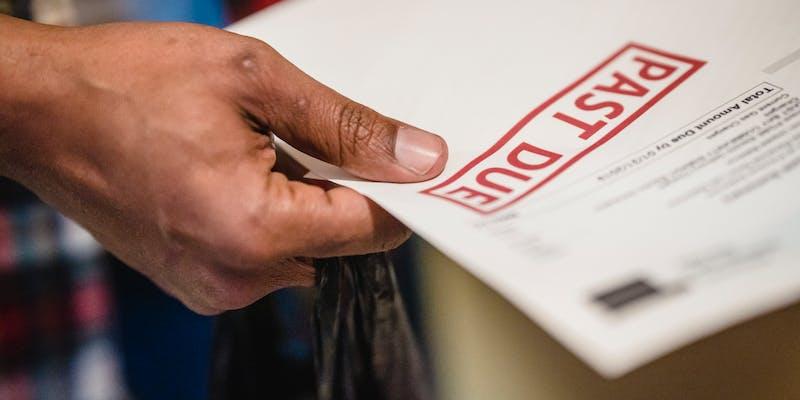Understanding Late Fees: Definition, Working, and Avoidance Strategies
Jan 03, 2024 By Susan Kelly
A late fee is a price applied by lenders and companies to clients who miss their payment cut-off dates. This may include loan payments, credit score playing cards, insurance guidelines, or rental agreements. The cause of a past due price is to encourage timely bills. The details regarding late fee afterpay are usually mentioned in the preliminary deal or contract, and any modifications to those expenses must be communicated in advance and in writing.
Groups, including banks and landlords, hire various strategies to generate sales, and enforcing late expenses is one such strategy. These costs are levied on clients who fail to pay their bills by the due date. For example, an overdue fee can be added to their next invoice if a credit card person does not pay the minimal amount due through the specified date. Similarly, a tenant may want to face a late fee afterpay for not paying the hire on time.
Contracts, including credit score card agreements or leases, should include any past-due charges. Those prices can not be exorbitant and should be within an affordable range. Normally, overdue costs vary between $25 and $50. In the U.S., the Patron Monetary Safety Bureau (CFPB) oversees these practices to ensure fairness.
An overdue fee on a credit score card will increase the stability and appeal to the hobby on the rate itself. Lacking bills can adversely affect someone's credit rating. Charge history is a critical component in credit score scoring, contributing to approximately 35% of the FICO score. Therefore, frequent past-due payments can result in higher charges and a lower credit score. In keeping with FICO, a neglected fee can drop a credit score using as many as 180 factors, relying on different credit elements.
Avoiding Late Fees and Extra Charges

- Keeping an eye on due dates and arranging automatic bill payments from a bank account is a savvy move for consumers aiming to dodge late fee bank. This tactic works well as long as there's sufficient cash in the account to handle the payment.
- Prompt payment of credit card bills each month, ideally in full, is a wise choice to sidestep interest. However, when paying the total balance isn't feasible, ensuring at least the minimum payment is made punctually can keep late fees at bay.
- Creditors sometimes adjust interest rates based on payment records, a practice known as penalty repricing. In such cases, the interest rate can jump to the higher penalty APR outlined in the credit contract.
- Late fees are just one type of charge levied by banks and companies. Credit card holders might also encounter annual fees, balance transfer fees, foreign transaction fees, and returned payment charges. Careful selection of credit cards (as not all levy every fee), adherence to contract terms, and avoiding actions that incur fees can help steer clear of these costs.
Strict Action Against Excessive Late Fees
A 2023 paper via the Customer Financial Safety Bureau (CFPB) highlighted that Americans are confused with approximately $12 billion annually because of immoderate credit score card late charges. The Credit Card Responsibility Duty and Disclosure Act of 2009, commonly called the Card Act, mandates that overdue costs must be truthful and in percentage to the actual expenses incurred by credit score card organizations due to behind-schedule payments.
However, the CFPB's investigation determined that overdue fees can reach as much as $41, notably exceeding the charges they are speculated to replicate. The sales from these costs are around five instances more than the actual collection fees. To deal with this, the CFPB indicates capping charges at $8 or limiting them to 25% of the minimum payment due, whichever is decreased. The CFPB's scrutiny didn't stop at credit cards. It also identified problematic practices in other loan sectors. Auto lenders, for example, have been caught imposing Late fee bank higher than those agreed upon in loan contracts. A notable instance involved a servicer charging a $25 late fee when the contract limited it to 5% of the monthly payment, often less than $25.
Mortgage servicers have also been under fire. The CFPB found that some were exceeding the contracted late fee amounts and contradicting their statements by charging late fees after assuring consumers they wouldn't. Another concerning practice involves student loan services. After accepting credit card payments over the phone, some representatives would reverse them, realizing their systems didn’t support such transactions. This action, unfortunately, resulted in unwarranted late fees for unsuspecting borrowers trying to make timely payments.
Strategies for Efficient Organization

Utilizing Calendar Reminders
A truthful method to maintain the music of your bills is to use calendar reminders. You may opt for a digital calendar or a conventional planner. Schedule indicators some days before every invoice is due. For instance, if your credit card fee is due on the 15th of every month, putting a reminder for the tenth offers you time to put together and pay without any final-minute hassles. According to a 2022 survey, about 65% of those who used virtual reminders reported fewer instances of overdue payments.
Setting Up Automatic Payments
Many monetary institutions and service carriers now provide options to late fee example automate your bills. This is convenient for ordinary, constant costs like hire or software bills. For example, if your lease is continually $1,000, due on the first of each month, an automated transaction with your landlord can ensure a well-timed price without additional attempts for your component. Statistics show that in 2021, approximately seventy 2% of Americans used automated payments for everyday payments.
Online Bill Payment Services
Many online structures offer to manipulate and pay your bills from an unmarried dashboard. Those structures regularly offer reminders and cozy charge alternatives. Offerings like Mint bills or Prism permit you to keep track of diverse bills, set reminders, and make payments effortlessly. As of 2023, systems like those have seen a 40% growth in utilization, highlighting their effectiveness in invoice management.
Mobile Banking Apps
The general public of banks now offers late fee example mobile packages that can help you control your budget remotely. Those apps were typically characteristic of bill charge alternatives, balance alerts, and transaction updates. For example, when you have a bank-issued credit card, their app would enable you to set fee reminders or automate transactions from your account. A 2021 report indicated that 78% of financial institution customers within the US often used cellular banking apps for invoice bills and reminders.








